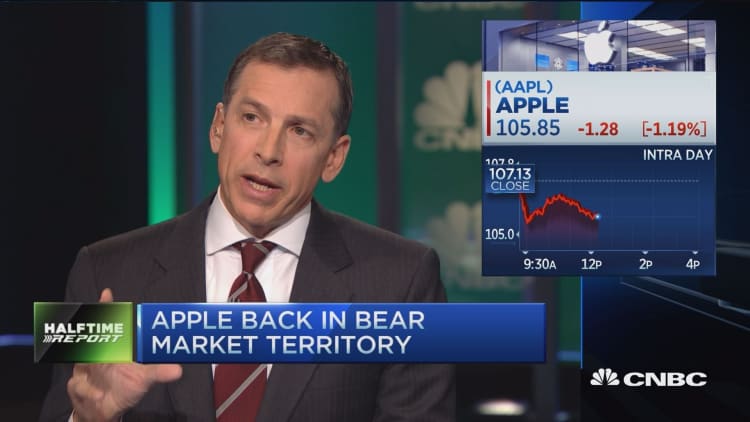
Apple stock slumped, entering bear market territory Thursday as key supplier Qualcomm stumbled.
Apple shares were down just over 1 percent at $105.97 Thursday, 21 percent below the 52-week high of $134.54 from April 28, 2015. A bear market is considered to be a decline of 20 percent from recent highs.
How are Apple suppliers trading? Click here to track the stocks on CNBC.com.
Qualcomm, maker of the popular Snapdragon mobile processors, posted better-than-expected earnings Wednesday after the bell, reporting $1.04 per share on $5.54 billion in revenue. But shares were 1.2 percent lower Thursday after company officials forecast falling chip shipments.
Raymond James analyst Tavis McCourt trimmed his estimate of iPhone unit sales for June and September after Qualcomm's earnings, writing the chipmaker's guidance "provides further evidence that iPhone hangover is not over yet."
Other Apple suppliers, like Broadcom and Skyworks Solutions, also traded in the red. Apple is down 3 percent this week.
Apple debuted a new MacBook laptop earlier in the week, and announced Wednesday it would delay its next earnings announcement by a day, now slated for April 26. Apple earnings are expected to be closely tracked by Wall Street for signs the smartphone market is reaching saturation.
"Overall, we view the iPhone as a product line that is maturing," McCourt wrote in a research note. "We still expect a rebound in iPhone trends with the iPhone 7 this fall, but are generally more sanguine than street consensus."
— Reuters and CNBC's Gina Francolla contributed to this report.




